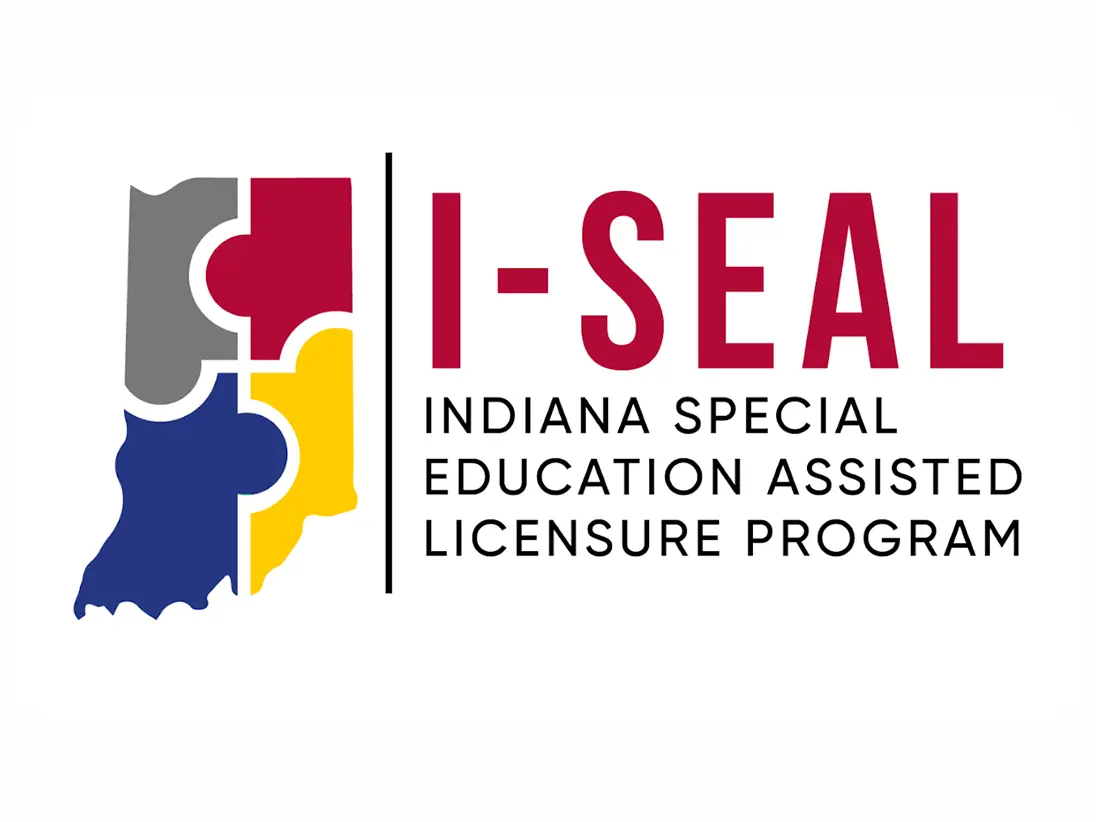-
-
- Financial Aid
- Financial Aid
- Scholarships
- Loans
- Grants
- Federal Work Study
- Additional Resources
-
From applying, to registering, to learning, to licensing—we are here to help you each step of the way!
The Mild Intervention Licensure program is a series of six graduate level courses for teachers to add Exceptional Children: Mild Intervention (P-12) certification to their Indiana license. This online program is self-paced, flexibly designed for full-time teachers.
Taylor's Mild Intervention licensure classes are completed in an asynchronous, online format, and most field experience requirements can be fulfilled within your own classroom.
Let us help you meet federal special educational licensure mandate taking effect after the 2021-2022 school year! If you live or teach outside of Indiana, search for your state’s reciprocity here. From applying, to registering, to learning, to licensing—we are here to help you!
Have questions? Contact Lyn Kline, Graduate Enrollment Counselor

Select your start date for each class, and take up to four months to complete each class. With no designated meeting times, you can fit classwork into your schedule. You can complete most field experiences while working in your own classroom.
Apply NowThe structure of the program is uniquely flexible.
Six classes are required to add Mild Intervention Licensure to your teaching license.
Content Area Assessment: Subject assessments measure your content knowledge of the subject(s) you will teach. To add this special education content area to a teaching license, you must take and pass the following test after you complete your courses:
Exceptional Needs: Mild Intervention, Special Education Foundational Knowledge (test code 5355) Those licensing after June 30, 2025 will also need to pass a literacy endorsement exam.
You are not alone in this process. We are here to help you! Please contact us if you have questions:
Joy Elzinga, Director of Teacher Licensure, joy_elzinga@taylor.edu, 765-998-5286
April Dickey, Director of Transition to Teaching/Online Licensure Programs, april_dickey@taylor.edu, 765-998-5145
The structure of the program is uniquely flexible. You pick the start date for your class—any day of the year. Once you choose your start date to begin your class, you’ll have up to 4 months to complete the coursework.
You can work on a class any time of the day and never have to be online at a specific time. While the coursework is completed online, some classes require classroom observations and experiences that are completed in your community. There is no student teaching requirement.
The process is simple.
Applications are accepted year-round for Taylor University’s online Mild Intervention Licensure program. The process of applying requires submission of the following:
Email your materials to lykline@tayloru.edu or send by mail:
Taylor University, Education Department
ATTN: Director, Transition to Teaching/Online Licensure Programs
1846 Main Street
Upland, IN 46989
Tuition is paid one class at a time as you proceed through the program. It is due when you enroll in a course—a date you select. Once paid, you can start the course the next business day, so you don’t have to wait for a semester or scheduled date to get started!
The process is simple.
Applications are accepted year-round for Taylor University’s online Mild Intervention Licensure program. The process of applying requires submission of the following:
Email your materials to lykline@tayloru.edu or send by mail:
Taylor University, Education Department
ATTN: Director, Transition to Teaching/Online Licensure Programs
1846 Main Street
Upland, IN 46989
Tuition is paid one class at a time as you proceed through the program. It is due when you enroll in a course—a date you select. Once paid, you can start the course the next business day, so you don’t have to wait for a semester or scheduled date to get started!

Ask us how you could qualify to have your program tuition and textbooks covered!
Contact
Lyn Kline
Graduate Enrollment Counselor
765-998-4878
email